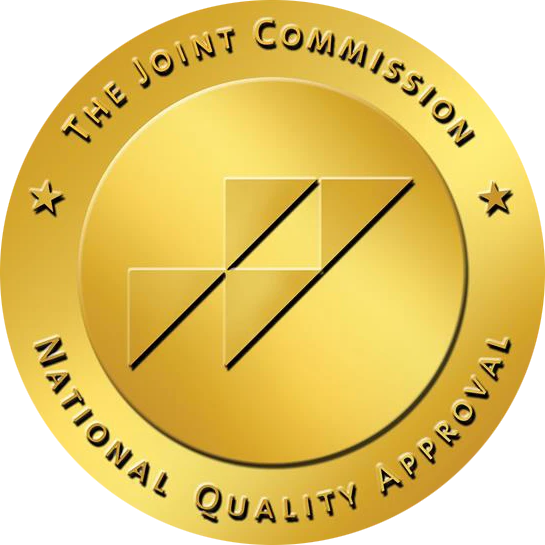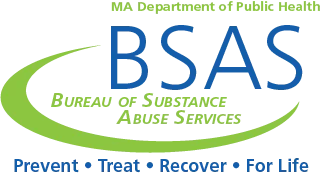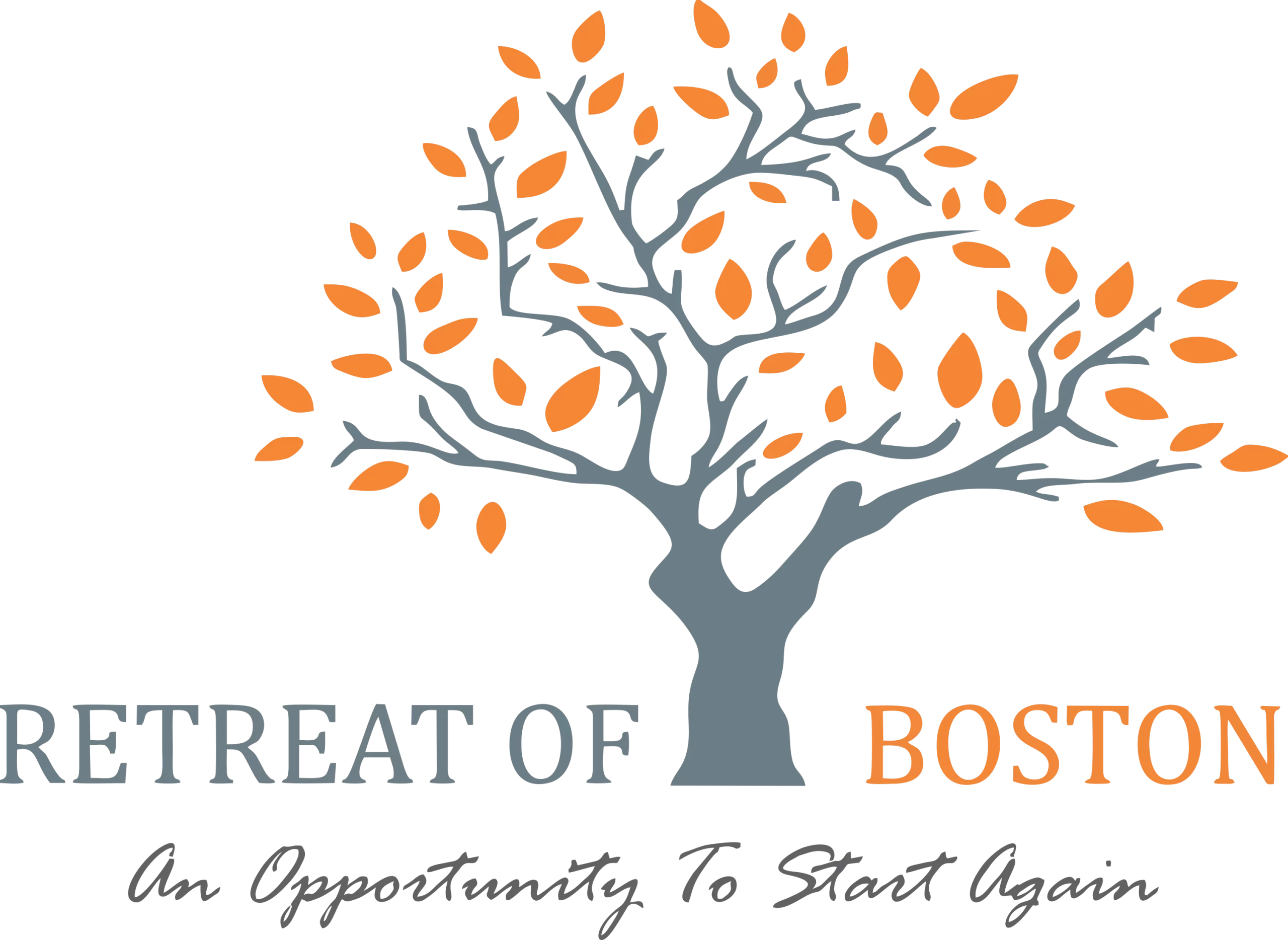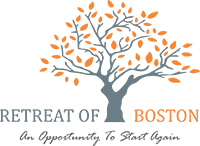Addiction Resources In Cambridge
The Retreat of Boston offers a range of evidence-based approaches to help you or your loved ones overcome addiction. Their programs include cognitive behavioral therapy, family therapy, and holistic approaches tailored to individual needs. By combining these methods with medication-assisted treatment when appropriate, they aim to provide a well-rounded treatment experience. Whether you're dealing with opioid addiction or other substance use issues, The Retreat of Boston is committed to supporting your journey towards lasting recovery and improved well-being.

The Addiction Crisis in Cambridge
Cambridge, like many other communities across the United States, faces significant challenges when it comes to substance use disorders and addiction. While the city has shown some positive trends, the issue remains a pressing concern for residents and health officials alike.
In Cambridge, the rate of drug-related deaths is below the national average and has decreased in recent years. However, this doesn’t mean the area is immune to the addiction crisis.
Treatment Accessibility and Utilization
In 2020/21, 1,125 people received treatment at specialist drug use services in Cambridge, MA. This number is similar to the previous year’s figure of 1,174. However, there’s still a significant portion of people who need help but aren’t receiving it. The proportion of people using opiates and/or crack cocaine who are not in treatment is similar to the national average.
Social Factors and Addiction
Research shows a strong correlation between deprivation and drug use. People who are socially and economically marginalized are at the highest risk of developing drug use problems. This connection highlights the need for holistic approaches that address not only the addiction itself but also the underlying social and economic factors.
Crime and Substance Use
The link between substance use and crime is another crucial aspect of the addiction crisis. It’s estimated that almost half of all acquisitive offenses (stealing) are committed by regular heroin/crack cocaine users. This connection underscores the broader societal impact of addiction and the importance of comprehensive rehabilitation programs.
Impact of COVID-19
The COVID-19 pandemic has exacerbated the addiction crisis. Substance and alcohol consumption increased during this period, often used as coping mechanisms for deteriorating mental health. This trend highlights the need for mental health services alongside addiction treatment in Cambridge.
As you navigate the addiction resources in Cambridge, it’s important to understand these various aspects of the crisis. From the prevalence among young adults to the impact of social factors and the ongoing effects of the pandemic, addressing addiction requires a multifaceted approach. The Retreat of Boston’s drug detox program and other local services aim to provide this comprehensive care, offering hope and support to those affected by substance use disorders in the Cambridge area.

About The Retreat of Boston
The Retreat of Boston stands as a leading provider of medical detox services for those seeking to break free from the grip of addiction. Located near Cambridge, MA, our addiction treatment program offers a comprehensive approach to recovery, combining medical expertise with compassionate care.
When you step into The Retreat of Boston’s detox programs, you’re greeted by a team of dedicated professionals committed to guiding you towards a healthier, brighter future. Their primary objective is to ensure that anyone in need of drug or alcohol detox receives vital assistance from their specialized treatment center.
One of the key features of is the 24/7 medically-supervised detox program. This program blends medication-assisted treatment (MAT) with mental health services, providing you with a safe and comfortable environment to begin your recovery journey. A diverse team of physicians, nurses, and mental health treatment providers oversee this process, ensuring your well-being at every step.
Following detox, you can participate in individual counseling, which typically lasts about 12 weeks, depending on your specific needs. The Retreat of Boston recognizes that addiction often coexists with other mental health challenges. Their holistic approach integrates therapy and counseling to address common co-occurring conditions such as trauma, post-traumatic stress disorder (PTSD), depression, and anxiety.
The treatment options at The Retreat of Boston are diverse and tailored to your individual needs. These include:
- Cognitive Behavioral Therapy (CBT)
- Dialectical Behavioral Therapy (DBT)
- Family therapy
- Support groups
- Holistic approaches like trauma-informed treatment
What sets our Camridge detox program apart is their unwavering commitment to aftercare planning. They don’t simply send you on your way after detox; instead, they work with you to ensure you have the resources and support needed for successful long-term recovery. Their extensive aftercare services and discharge planning are designed to give you the best possible chance at maintaining sobriety.
Additionally, The Retreat of Boston accepts most insurance plans including GEHA, BCBS, UHC, Veteran benefits, and more making the comprehensive drug and alcohol detox and addiction treatment programs more accessible. This commitment to accessibility aligns with their mission to empower those in need and guide them toward recovery.
By choosing The Retreat of Boston, you’re not just selecting a detox facility; you’re opting for a supportive community dedicated to your long-term well-being. Their approach combines medical expertise, personalized care, and a range of evidence-based therapies to address both the physical and psychological aspects of addiction. Whether you’re seeking help for yourself or a loved one, The Retreat of Boston offers a path to recovery in a compassionate and professional environment.
Our Comprehensive Addiction Treatment in Cambridge, MA Process
When you seek help for addiction at The Retreat of Boston, you’ll go through a thorough evaluation process. This comprehensive assessment is crucial to determine the nature and complexity of your substance abuse issues and to create a personalized treatment plan.
The assessment begins with a clinical interview to gather information about your history, experiences, and how substance use has impacted your life. This helps identify the severity of the problem and any co-occurring factors that may be contributing to your addiction.
During this process, the team at The Retreat of Boston’s detox in Cambridge will evaluate various aspects of your life, including:
- Medical status: This includes checking for infectious diseases like HIV, tuberculosis, hepatitis, and sexually transmitted diseases.
- Psychological well-being: The assessment explores your mental health and potential psychiatric disorders.
- Social functioning: Your family dynamics, peer relationships, and social interactions are examined.
- Educational and occupational status: Your educational performance and job-related issues are considered.
- Legal matters: Any criminal or delinquent behaviors are taken into account.
- Socioeconomic status: The team looks at your financial situation and associated challenges.
This comprehensive approach allows the treatment team to understand the full scope of your needs. By examining these different areas, they can develop a treatment plan that addresses all relevant concerns, not just the addiction itself.The assessment also helps to determine the most appropriate level of care for you. Whether you need medical detox, inpatient treatment, or outpatient services, the team will make recommendations based on your individual circumstances.
Another crucial aspect of the assessment is evaluating your motivation to change. This helps the team decide whether you might benefit from motivational enhancement interventions or if you’re ready for more self-directed treatments. It’s important to note that assessment is an ongoing process at The Retreat of Boston. Your progress will be monitored throughout your treatment, allowing for adjustments to your plan as needed. This ensures that your treatment remains relevant and effective as your needs evolve during your recovery journey.
By involving you in the development of your treatment plan, The Retreat of Boston ensures that you understand what’s expected of you in terms of program commitments and attendance. This collaborative approach helps create a shared understanding between you and your treatment providers, setting the stage for a successful recovery process.
Remember, the goal of this comprehensive assessment is to create a roadmap for your recovery. It specifies where you are now, where you need to be, and how you can best use available resources to get there. With this thorough understanding of your unique situation, The Retreat of Boston can provide you with the most effective, personalized care to support your journey to recovery.
The Role of Personalized Treatment Planning
At The Retreat of Boston, you’ll receive a treatment plan tailored to your specific needs and circumstances. This personalized approach recognizes that each individual’s journey to recovery is unique, influenced by various factors such as your environment, tolerance, usage rate, family and medical history, past experiences, current challenges, relationships, life circumstances, and emotional wellbeing.
The process begins with an in-depth evaluation and assessment. This crucial step allows the treatment team to identify all obstacles to your recovery and create an individualized plan to address these issues. Your medical health, emotional well-being, and specific life challenges are carefully considered to determine the most effective therapies and interventions for you.
Here’s how personalized treatment at The Retreat of Boston can help you:
- Uncover the underlying causes of addiction
- Identify and acknowledge your triggers
- Explore your family history of addiction
- Pinpoint unhealthy relationships in your life
- Discover unhealthy behavior patterns that encourage addictive behavior
- Develop healthy coping skills that fit your personality
The Retreat of Boston understands that addiction often coexists with mental health challenges. If you’re dealing with co-occurring conditions such as trauma, post-traumatic stress disorder (PTSD), depression, or anxiety, your treatment plan will address both your substance use disorder and mental health needs.
Medication monitoring is another crucial aspect of personalized treatment. You’ll receive the correct dosage and combination of medications to stabilize your symptoms, with careful monitoring if a step-down process is needed.
Your plan also includes comprehensive medical care to identify and treat any underlying physical issues that may have developed during your addiction. Preventative care is provided as required to ensure your overall health and well-being.
As you progress through treatment, your plan will evolve. The team at The Retreat of Boston continuously assesses your progress and adjusts your treatment accordingly. This flexibility ensures that your care remains relevant and effective throughout your recovery journey.
Importantly, your personalized treatment plan extends beyond your time at the facility. The Retreat of Boston provides each client with a thorough aftercare plan, ensuring you receive the support you need to continue your recovery long-term. This may include strategies to avoid relapse, such as:
- Avoiding triggers
- Changing your environment
- Maintaining a healthy schedule
- Exercising regularly
- Developing a supportive sober network
- Participating in meaningful activities
- Practicing mindfulness
- Reducing stress
By tailoring your treatment plan to your unique needs and circumstances, The Retreat of Boston aims to give you the best possible chance at long-term recovery and improved quality of life.
Therapies Used At Our Addiction Treatment in Cambridge, MA Program
At The Retreat of Boston, you’ll benefit from a range of evidence-based therapy approaches that have been scientifically proven to be effective in treating substance use disorders. These therapies are the foundation of your personalized treatment plan, designed to give you the best chance at long-term recovery.
Cognitive-Behavioral Therapy (CBT) in Cambridge, MA
CBT is often considered one of the most effective approaches for treating addiction. This therapy helps you identify and change negative thought patterns and behaviors that contribute to your substance use. You’ll learn to develop coping skills and strategies to prevent relapse, making it easier to maintain your recovery in the long term.
Motivational Interviewing (MI)
MI is a client-centered therapy aimed at enhancing your motivation for change. This approach helps you explore and resolve any ambivalence you might have about quitting substance use. By working with a therapist, you’ll discover your own reasons for change and develop a stronger commitment to recovery.
Dialectical Behavior Therapy (DBT)
If you’re dealing with co-occurring substance use and mental health disorders, DBT can be particularly helpful. This therapy emphasizes mindfulness, emotional regulation, interpersonal effectiveness, and distress tolerance. These skills can help you manage difficult emotions and situations without turning to substances.
Trauma-Informed Therapy
Many individuals with substance use disorders have experienced trauma. Trauma-informed therapy addresses the impact of these experiences on your addiction and aims to help you heal and recover. This approach recognizes the connection between past trauma and current substance use, providing a path to address both issues simultaneously.
Family Therapy
Family treatment approaches have shown to be effective in treating addiction. This therapy involves working with your family to address underlying issues that may contribute to your substance use. By improving communication and family dynamics, you’re more likely to see positive results, including increased abstinence rates and improved overall functioning.
Holistic Approaches
In addition to these evidence-based therapies, The Retreat of Boston incorporates holistic practices like yoga and meditation. These practices support your overall well-being, addressing the physical, emotional, and spiritual aspects of recovery.
By combining these various approaches, The Retreat of Boston offers a comprehensive treatment program that addresses all aspects of your addiction. Remember, these therapies can be used individually or in groups, and they’re often most effective when combined with medication-assisted treatment (MAT) for certain substance use disorders.
Your treatment team will work with you to determine which combination of these evidence-based approaches will be most beneficial for your unique situation. This personalized approach, grounded in scientific research, gives you the best possible chance at achieving and maintaining recovery.
Medication-Assisted Treatment Options in Cambridge
At The Retreat of Boston, you have access to Medication-Assisted Treatment (MAT), a comprehensive approach that combines medications with counseling and behavioral therapies to treat substance use disorders. This evidence-based method has gained recognition as particularly effective for addressing opioid addiction and other types of substance use disorders.
MAT provides a “whole-patient” approach to treating addiction, especially for opioids such as heroin or prescription pain relievers. It helps normalize brain chemistry, blocks the euphoric effects of opioids, and relieves physical cravings without the negative effects associated with substance misuse.
There are three FDA-approved medications commonly used in the treatment of opioid use disorder (OUD):
- Methadone
- Buprenorphine (e.g., Suboxone)
- Extended-release naltrexone (e.g., Vivitrol)
These medications are considered “essential medicines” by the World Health Organization. When combined with behavioral services, they can help sustain recovery more effectively than medication or psychosocial treatment alone. It’s important to understand that MAT in Cambridge programs are not simply substituting one addictive drug for another. The dosage used in medication-assisted treatment does not produce the “high” associated with opioid misuse. Instead, these medications restore balance to the brain circuits affected by addiction, allowing your brain to heal while you work towards recovery.
For alcohol use disorder (AUD) detox and treatment, several medications are available:
- Disulfiram: Serves as a deterrent to alcohol use by causing physical reactions like nausea and vomiting when alcohol is consumed.
- Naltrexone: Blocks the rewarding effects of alcohol and reduces cravings. It can be taken daily by mouth or monthly as an extended-release injection.
- Acamprosate: Helps reduce the desire to drink by addressing brain changes caused by long-term alcohol use.
These medications must be used under medical supervision and monitoring for side effects. They can support abstinence and help prevent relapse when used as part of a comprehensive treatment plan.
At The Retreat of Boston, your treatment team will work with you to determine the most appropriate medication options based on your individual needs and circumstances. Remember, MAT is just one component of a holistic approach to recovery that includes counseling, behavioral therapies, and ongoing support to help you maintain long-term sobriety.
Find Quality Addiction Treatment in Cambridge, MA Today
The Retreat of Boston offers a comprehensive approach to addiction treatment, combining evidence-based therapies, personalized care, and ongoing support. Their commitment to addressing the root causes of addiction, along with co-occurring mental health issues, gives individuals a strong foundation for lasting recovery. The facility’s focus on continuing care and relapse prevention strategies equips patients with the tools they need to maintain sobriety long after leaving treatment.
By providing a range of services from medically supervised detox to aftercare planning, The Retreat of Boston stands out as a beacon of hope for those struggling with substance use disorders in Cambridge and beyond. Their holistic approach, which takes into account the physical, emotional, and social aspects of addiction, paves the way for individuals to rebuild their lives and achieve lasting wellness. With The Retreat of Boston’s support, those seeking help can embark on a journey towards a healthier, more fulfilling future. Contact us today to learn more about our Cambridge addiction treatment programs and services.
Break Free from Addiction
Take the first courageous step towards a life of recovery and renewed well-being. If you or a loved one is struggling with substance abuse, our specialized detox programs in Boston are here to provide the support and care needed for a safe and effective detoxification journey.Don't let addiction hold you back any longer—seize the opportunity to break free and embark on a path towards lasting recovery. Contact us today to speak with our dedicated team, ready to guide you through the personalized detox program that aligns with your unique needs and goals. Your journey to a healthier, substance-free life begins now. Reach out, and let us help you reclaim control and rediscover the possibilities that await beyond addiction. Take that vital step towards a brighter, addiction-free future—call our care specialists team now.
Take The First Step Towards Your Journey To Recovery
What People Say

Edward C.

Sarah L.

Daniel P.
Our Licenses



